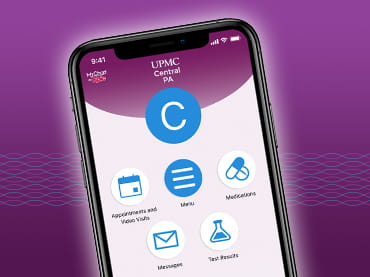One concern that survivors have is breast cancer recurrence. Recurrent breast cancer is cancer that has come back in the same or opposite breast or chest wall after a period of time. This is caused by small cancer cells that may have remained in the body after your initial treatment. Over time, these cells multiply and can cause the cancer to come back in the same place (local) or in another location (regional).
It’s impossible to predict a recurrence. But, your doctor may be able to indicate if you are at greater risk because of family history.
Following breast cancer treatment, your doctor will perform periodic check-ups to look for a recurrence. During these appointments, your doctor will ask about your health and will perform a physical exam. Your doctor may also perform blood or imaging tests, particularly if a recurrence is suspected.
Often, your doctor will tell you to watch for specific signs or symptoms of recurrence. Tell your doctor right away if you experience any of these.
Metastatic Breast Cancer
An additional concern for certain women may be developing metastatic or distant recurrence breast cancer. Metastatic cancer is breast cancer that has spread to other parts of your body. This is considered advanced-stage or Stage IV breast cancer.
The most common places for metastatic breast cancer to be detected are the bones, the lungs, the liver, and the brain.
If you have any of the symptoms of metastatic breast cancer, your doctor may recommend one or more of the following tests:
- Blood tests (including tumor markers in some patients)
- Whole-body bone scan, with or without x-rays of specific bones
- MRI of the spine or brain
- CT scan of the chest, abdomen, pelvis, and/or brain
- PET scan
- X-ray or ultrasound of the abdomen or chest
- Bronchoscopy if you have a constant cough or trouble breathing
- Biopsy of any suspicious area
- A removal of fluid from the area with symptoms to check for cancer cells a pleural tap removes fluid between the lung and chest wall and a spinal tap removes fluid from around the spinal cord
If you do not have signs and symptoms of recurrent cancer, there is no need for laboratory or imaging studies for metastases screening.
Coping with Fear of Cancer Recurrence
It’s normal to worry about a recurrence following breast cancer treatment. For some people, however, this worry can trigger things such as a headache, cough or joint stiffness. In serious cases it can lead to depression and anxiety.
The fact is that you can’t directly control a cancer recurrence. But you can control how much the worry affects your life.
Here are some tips to help you cope with the concern of recurrence:
- Talk with your doctor about your risk of recurrence and symptoms to watch for
- Keep regularly scheduled follow-up appointments
- Talk about your fears and feelings with a friend, family member or mental health professional
- Stay healthy by eating nutritious meals, exercising regularly and getting enough sleep
- Avoid unhealthy habits such as smoking and excessive drinking as these have been linked to an increased risk of cancer recurrence
- Manage your stress so that you can lower your overall anxiety
If you're not able to cope with the emotions you are experiencing, speak with a member of your UPMC Breast Care Center team. The team may suggest you see our psychologist via the UPMC Pinnacle Cancer Rehabilitation and Survivorship Program.
Need more information?
Phone: 717-545-5000
Request Information
Locations
PinnacleHealth Breast Care Center
Located at UPMC Hillman Cancer Center at the Rocco and Nancy Ortenzio Cancer Pavilion
2035 Technology Parkway
Suite 200
Mechanicsburg, PA 17050
Phone: 717-988-1450
Fax: 717-221-5544
PinnacleHealth Breast Care Center
Located at Medical Sciences Pavilion
4300 Londonderry Road
Suite 202
Harrisburg, PA 17109
Phone: 717-545-5000
Fax: 717-545-5002

















